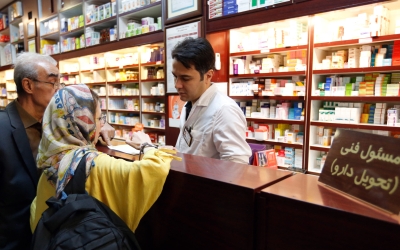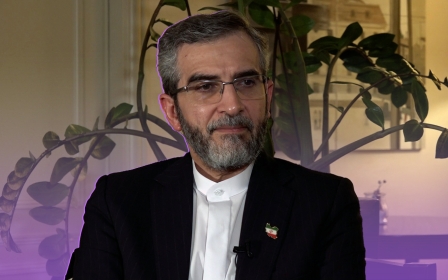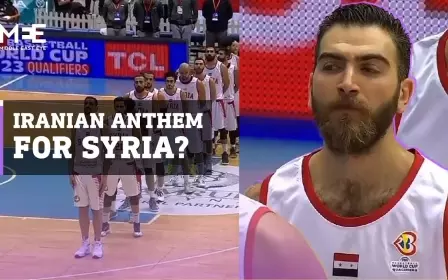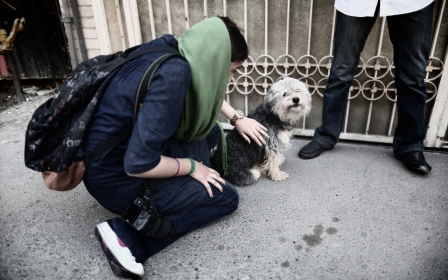The young Iranians fed up with nuclear talks, never-ending sanctions

Morteza was 18 years old when negotiations over Iran's nuclear programme began. He is now 36, and the stilted talks are still going on, while sanctions have long crippled the Iranian economy.
"Our entire life is about uranium, centrifuges and nuclear plants," Morteza*, from Mashhad, told Middle East Eye.
"After 18 years, this nuclear programme has had one thing for me: the loss of my youth. Enough is enough."
Many other Iranians agree. The long process of negotiations, economic punishment and diplomatic posturing has led to frustration with the nuclear programme.
Erstwhile president Mahmoud Ahmadinejad's once popular slogan "Nuclear energy is our inalienable right" is no longer repeated on the streets, stirring fears among Islamic Republic officials that government plans lack support.
New MEE newsletter: Jerusalem Dispatch
Sign up to get the latest insights and analysis on Israel-Palestine, alongside Turkey Unpacked and other MEE newsletters
Decades of talks
After a five-month hiatus, long-awaited talks on Iran's nuclear programme between the Islamic Republic and the P4+1 nations of Britain, France, China, Russia and Germany resumed in Vienna this week.
At stake is the revival of the Iran nuclear deal, the so-called Joint Comprehensive Plan of Action (JCPOA). The new Iranian negotiating team, under recently elected President Ebrahim Raisi, has come to the negotiating table with what appears to be a far tougher approach than that of the previous Rouhani government.
But his is the sixth consecutive administration forced to engage with the nuclear issue.
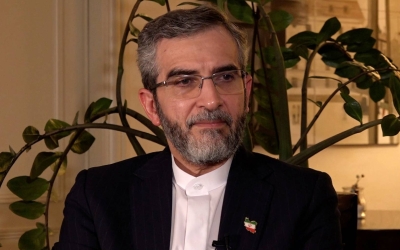
Talks first began on the country's nuclear programme in 2003, during Mohammad Khatami's presidency, as France, Britain and Germany came to an agreement with Iran for it to stop uranium enrichment.
Under US pressure, European countries failed to comply with their obligations under the 2003 agreement reached in Tehran, Brussels and Paris, which pushed Iran to adopt a less cooperative approach.
The government of Mahmoud Ahmadinejad, disregarding international sanctions, rapidly developed Iran's nuclear programme over his eight years in power, from 2005 to 2013.
But even Ahmadinejad, who was able to rally domestic support behind the development of the programme, could not resist pressure from international powers and had to enter negotiations.
All that the talks during his presidency yielded, however, were several UN Security Council resolutions.
'Centrifuges must spin'
Mohammad Ali, a 37-year-old from Isfahan, once supported the nuclear programme.
"I believed that we should not have given in to the bullying. The United States and Europe were bullying us and wanted to deprive us of the nuclear programme. That is why I voted for Ahmadinejad in 2005.
"I was young and naive. Maybe if I had grown up, then I would not have defended the nuclear programme so passionately, a programme that only resulted in sanctions on us.
"I do not think the younger generation today shares the same perspective we used to have. They have seen and heard of the problems it has created, and they are less supportive of it now."
Ahmadinejad's pursuit of a nuclear programme led to tough sanctions on Iran's central bank and oil industry, which proved disastrous for the economy.
The severity of the sanctions likely carried Hassan Rouhani to power in 2013. He promised to end the nuclear saga and secure the removal of sanctions, campaigning under the slogan: "It is true that our centrifuges must spin, but the wheel of the country's economy has to spin too."
But despite signing the landmark JCPOA nuclear deal in July 2015, Rouhani failed on his promise. The nuclear issue rumbles on.
"I remember that, during the 2015 negotiations, we eagerly followed all the rounds of the talks," Farzaneh, a 31-year-old from Gorgan, told MEE.
"We believed in Mr [Mohammad Javad] Zarif [Iran's lead negotiator]. He really worked hard, but it did not work out. Now, I have no interest in knowing what is happening in Vienna these days. I am tired of seeing my hopes get shattered.
"I do not know at all what benefits this nuclear programme has for us... but I know pretty well that the rulers are so stubborn that they do not give up on pursuing their idea. I hoped we would have at least reached an agreement with the world, that our living conditions would be normal."
After the unilateral withdrawal from the JCPOA by the United States in May 2018, international sanctions were re-imposed on Tehran.
Negotiations resumed three years later between Iran and the JCPOA participants, though with only the indirect involvement of the United States, after Joe Biden’s election to the US presidency.
But, as Hassan Rouhani put it, internal opposition among Iranian hardliners prevented reaching an agreement before the Iran's presidential election in June this year.
In a climate of frustration and little hope, the Raisi administration started this latest round of talks in Vienna.
"To me and my friends, it does not matter at all what nuclear negotiations are, and basically whether we are going to achieve nuclear energy or not," 27-year-old Yasi, from Tehran, told MEE. "What matters most to us at the Vienna talks is whether the sanctions will be lifted and whether there will be an improvement in people's living conditions.
"The lifting of sanctions can make my life and the lives of those around me easier," added Yasi, who has a bachelor's degree in petroleum engineering but is unemployed. "Otherwise, basically nuclear energy does not matter to us. We are not willing to experience much hardship, sanctions and difficulties because of nuclear energy."
Faced with widespread unemployment and a devalued currency, many Iranians are fleeing the country.
Zainab, a 25-year-old woman based in Saveh, southwest of Tehran, told MEE: "Neither JCPOA nor anything else is important to us anymore. We have become indifferent to everything. These people [government officials] do whatever they want, and they do not care about what people think at all.
"If you ask me about nuclear energy, I would say, no, I do not want it. What benefits this nuclear energy can bring to us?
"We even have to worry about running water nowadays, but they keep talking about nuclear energy, uranium enrichment."
*Most of the Iranians interviewed for this article declined to provide their surnames out of fear of government reaction.
This article is available in French on Middle East Eye French edition.
Middle East Eye delivers independent and unrivalled coverage and analysis of the Middle East, North Africa and beyond. To learn more about republishing this content and the associated fees, please fill out this form. More about MEE can be found here.


